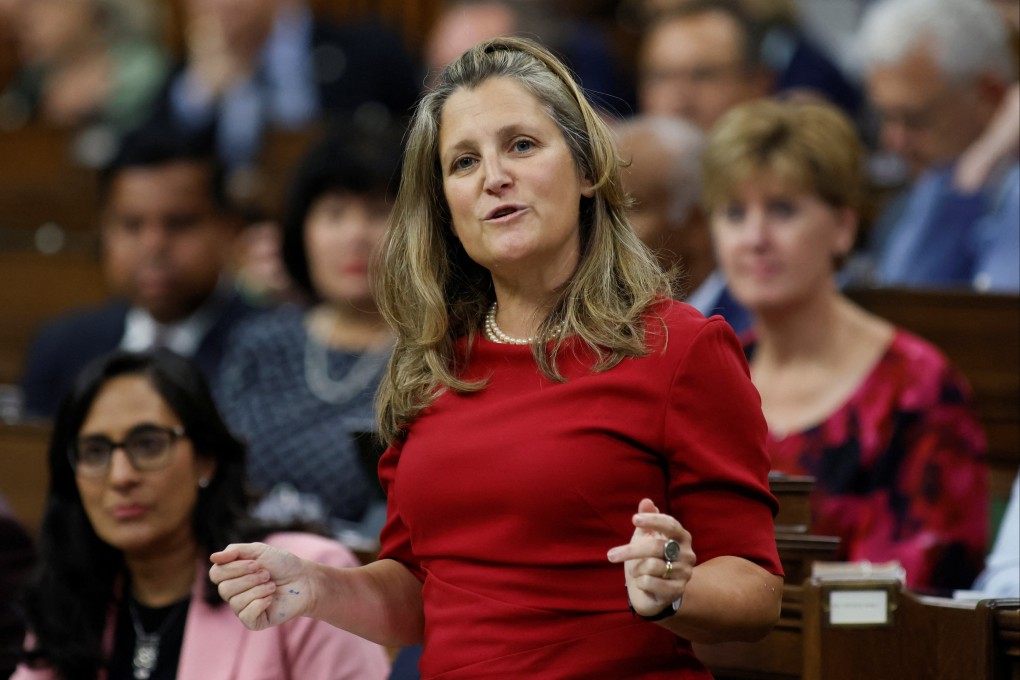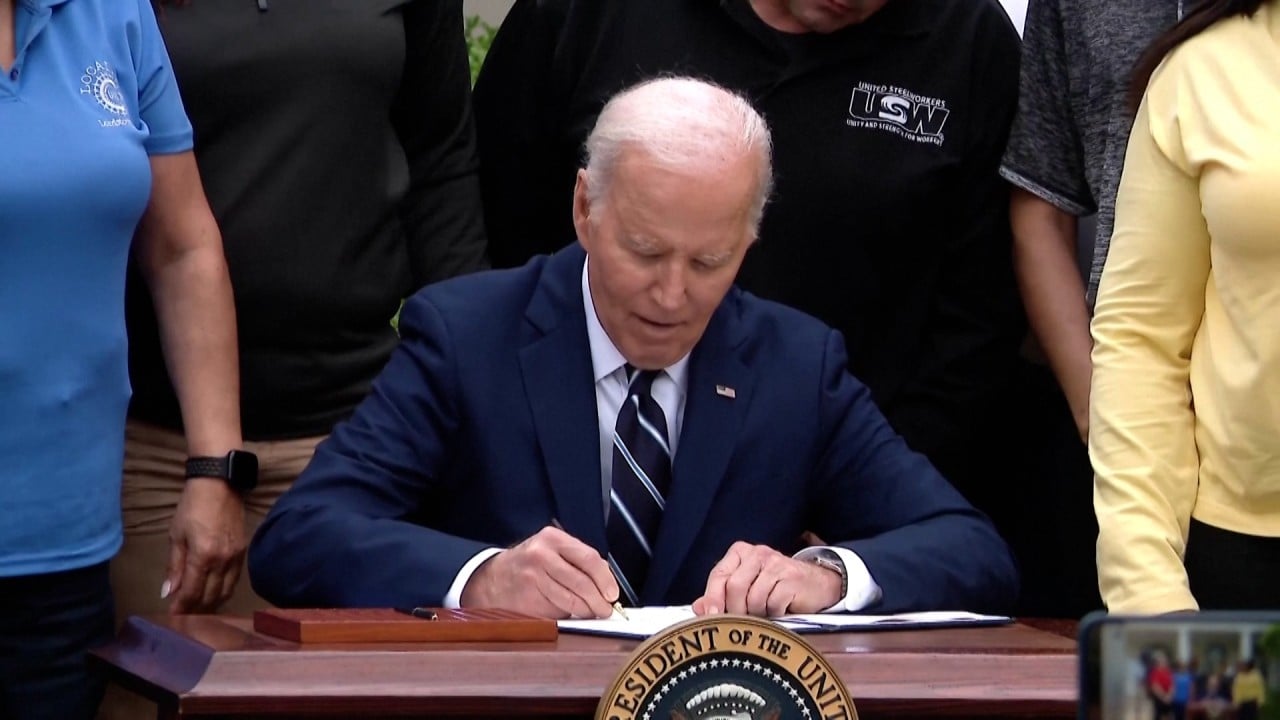Canada aims to match US on banning Chinese-made car software
The government is ‘absolutely’ looking such a measure, Finance Minister Freeland says, citing security concerns and Chinese overcapacity

Canada is looking at banning Chinese-made software in vehicles after the US took steps toward doing so, Finance Minister Chrystia Freeland said on Tuesday.
“The short answer is absolutely,” she told reporters when asked whether Canada was considering following the US move. “Our government has made very clear that we take really seriously intentional Chinese overcapacity and we take very seriously the security threat from China.”
Prime Minister Justin Trudeau’s government has already announced a 100 per cent tariff on Chinese EVs, along with 25 per cent tariffs on aluminium and steel. Last month Freeland also launched a consultation on other Chinese goods that could get hit with steep duties, including battery parts and critical minerals.
Freeland has justified those tariffs on the basis that China is engaging in unfair trade practices by overproducing goods using massive state subsidies to undercut industries in other countries.
But it is unclear whether the tariffs will survive a legal challenge through the World Trade Organization. China recently announced it would challenge the levies under WTO provisions that both countries have signed onto.
Banning Chinese-made car software would probably be a more permanent measure to keep the country’s electric vehicles from entering the Canadian marketplace, according to government officials who spoke on condition they were not named. But Canada is also weighing the security and privacy aspects of the software in deciding how to proceed.

